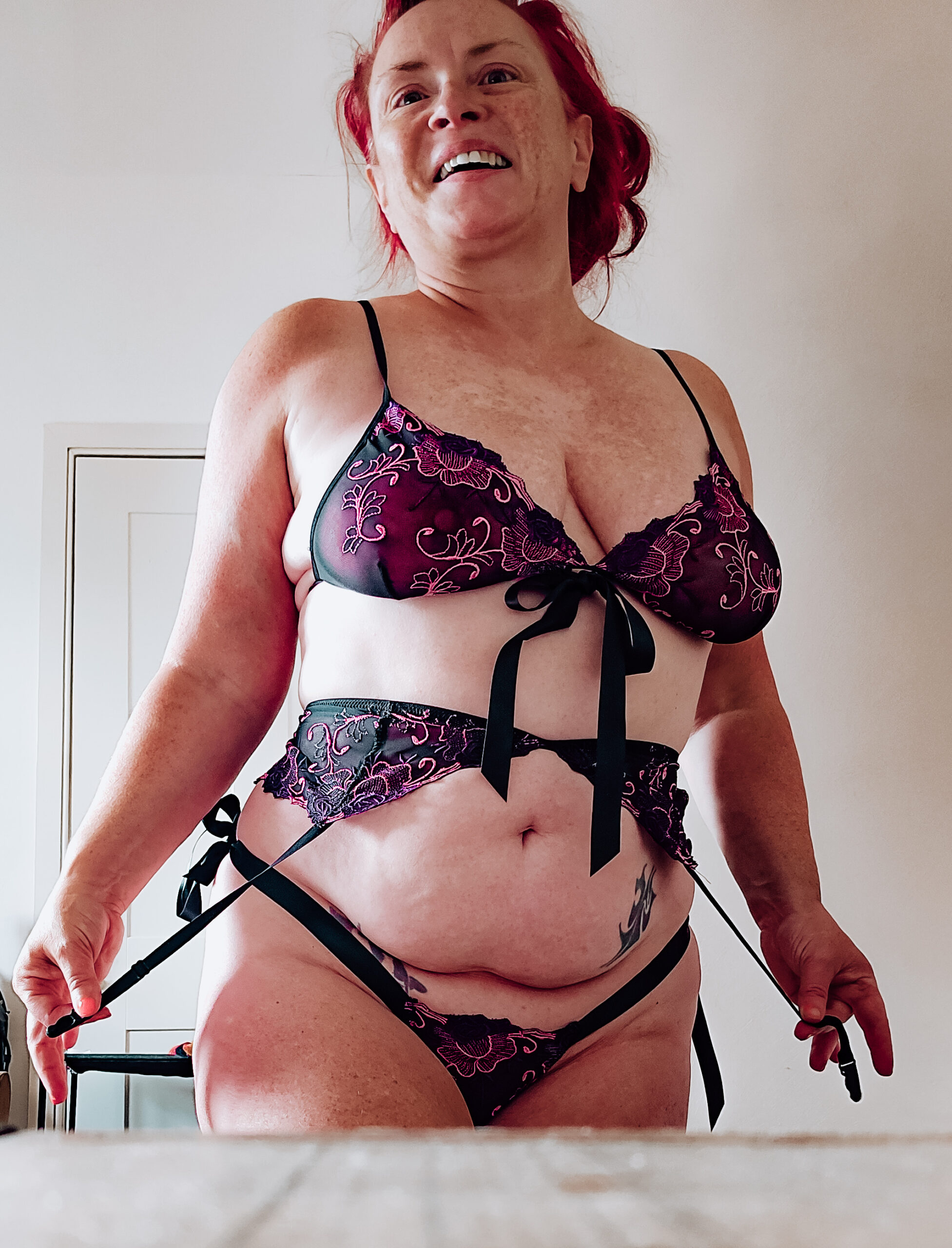Understanding Situationships
Situationships, those ambiguous romantic entanglements that fall somewhere between friendship and committed relationships, can be confusing and emotionally draining. Navigating them requires clarity, self-awareness, and a willingness to establish healthy boundaries. This article explores the complexities of situationships and provides guidance on how to discern your needs, communicate effectively, and ultimately move towards a more fulfilling connection.
Defining the Term
Situationships are undefined romantic relationships that lack the clear labels and expectations of traditional dating or committed partnerships. They often involve physical intimacy, emotional connection, and time spent together, but without the commitment of a defined relationship status. This ambiguity can leave individuals feeling uncertain about their roles and the future of the connection.
Recognizing Signs of a Situationship
Recognizing the signs of a situationship is crucial for taking control of your romantic life and fostering healthy relationships. Watch out for inconsistencies in behavior, such as one partner being hesitant to define the relationship while simultaneously exhibiting affectionate gestures and spending significant time together. Look for lack of commitment, including avoidance of making plans for the future or introducing each other to friends and family. Pay attention to communication patterns, noting any ambiguity or discomfort when discussing relationship status or expectations.
The Benefits and Drawbacks
Situationships can offer certain benefits, such as casual companionship, emotional intimacy without commitment pressure, and the opportunity to explore romantic feelings without serious implications. They can also provide a space for personal growth and self-discovery as you navigate your desires and boundaries.
However, situationships often come with drawbacks that can negatively impact well-being. The lack of clarity and defined expectations can lead to emotional confusion, insecurity, and feelings of being taken for granted. The absence of commitment may prevent individuals from fully investing in the relationship or exploring deeper emotional connections. Furthermore, situationships can hinder personal growth by perpetuating a pattern of avoiding vulnerability and establishing healthy boundaries.
If you find yourself in a situationship, it’s essential to prioritize your emotional well-being and seek clarity. Communicate openly with your partner about your needs and expectations. Express your desire for a defined relationship or consider stepping back from the situation if your needs are not being met.
Setting Boundaries
Setting boundaries is crucial when navigating situationships. A healthy boundary defines what you are and are not comfortable with in a relationship, protecting your emotional well-being and fostering respect between partners. In a situationship, establishing clear boundaries can help prevent misunderstandings, manage expectations, and ultimately guide you towards a more fulfilling connection.
Open Communication
Setting clear boundaries is essential for navigating situationships successfully. A boundary defines what you are and are not comfortable with in the relationship, protecting your emotional well-being and fostering respect between partners. For instance, if physical intimacy makes you uncomfortable without a defined commitment, communicate that clearly to your partner. You might say something like, “I value our connection, but I’m not comfortable being physically intimate without knowing where we stand as a couple.”
Open communication is equally important. Discuss your needs and expectations honestly and directly with your partner. Express what you desire from the relationship and be receptive to their feelings and perspectives. Active listening is crucial: pay attention to both verbal and nonverbal cues to ensure you understand each other’s viewpoints.
Defining Expectations
When defining expectations in a situationship, it’s important to be specific about what you are and aren’t comfortable with. This could involve the frequency of contact, level of physical intimacy, or involvement in social events together. Clearly stating your boundaries allows both parties to understand where they stand and prevents misunderstandings or resentment from building.
For example, if you prefer to keep things casual and don’t want to be exclusive, communicate this openly. Likewise, if you feel uncomfortable with certain behaviors or topics of conversation, express your feelings honestly. By setting clear expectations upfront, you create a foundation for a healthier and more transparent connection.
Establishing Limits
Establishing healthy boundaries is essential when navigating the complexities of situationships. Boundaries act as guidelines that define what you are comfortable with and what you’re not in a relationship. They protect your emotional well-being, promote respect between partners, and help clarify expectations.
- Clearly communicate your needs and expectations. Be open and honest about what you desire from the relationship, including your comfort levels with physical intimacy, exclusivity, and communication frequency.
- Enforce your boundaries consistently. When a boundary is crossed, address it calmly but firmly. This shows your partner that you are serious about respecting yourself and your needs.
- Don’t be afraid to say no. It’s okay to decline invitations or requests if they make you uncomfortable or violate your boundaries.
Remember, setting boundaries is an act of self-care and respect for yourself and your partner. By clearly communicating your needs and enforcing them consistently, you create a foundation for healthier and more fulfilling connections.
Evaluating Your Feelings
Understanding your feelings is crucial when navigating the often confusing landscape of situationships. To make informed decisions about your romantic life, it’s essential to tune into your emotions and recognize what you truly desire from a connection.
Self-Reflection

Take time for self-reflection and honestly assess your emotions regarding the situation. Ask yourself questions like: What are my feelings towards this person? What do I want out of this relationship? Am I comfortable with the level of commitment or lack thereof? What are my dealbreakers?

Pay attention to how you feel when you’re with this person, both physically and emotionally. Do you feel happy, secure, and respected? Or do you experience feelings of uncertainty, anxiety, or resentment? Recognizing your emotions can help you identify your needs and make decisions that align with your values.
Journaling can be a helpful tool for exploring your feelings and gaining clarity. Writing down your thoughts and emotions can help you process them more effectively and gain a deeper understanding of yourself.
Don’t dismiss your feelings or try to ignore them. Allowing yourself to feel them fully, even the uncomfortable ones, is essential for growth and making conscious choices about your romantic life.
Identifying Needs and Desires
Understanding your feelings is crucial when navigating the often confusing landscape of situationships. To make informed decisions about your romantic life, it’s essential to tune into your emotions and recognize what you truly desire from a connection.
- Take time for self-reflection and honestly assess your emotions regarding the situation. Ask yourself questions like: What are my feelings towards this person? What do I want out of this relationship? Am I comfortable with the level of commitment or lack thereof? What are my dealbreakers?
- Pay attention to how you feel when you’re with this person, both physically and emotionally. Do you feel happy, secure, and respected? Or do you experience feelings of uncertainty, anxiety, or resentment? Recognizing your emotions can help you identify your needs and make decisions that align with your values.
- Journaling can be a helpful tool for exploring your feelings and gaining clarity. Writing down your thoughts and emotions can help you process them more effectively and gain a deeper understanding of yourself.
- Don’t dismiss your feelings or try to ignore them. Allowing yourself to feel them fully, even the uncomfortable ones, is essential for growth and making conscious choices about your romantic life.
Honest Assessment of the Relationship
Understanding your feelings is crucial when navigating the often confusing landscape of situationships. To make informed decisions about your romantic life, it’s essential to tune into your emotions and recognize what you truly desire from a connection.
Take time for self-reflection and honestly assess your emotions regarding the situation. Ask yourself questions like: What are my feelings towards this person? What do I want out of this relationship? Am I comfortable with the level of commitment or lack thereof? What are my dealbreakers?
Pay attention to how you feel when you’re with this person, both physically and emotionally. Do you feel happy, secure, and respected? Or do you experience feelings of uncertainty, anxiety, or resentment? Recognizing your emotions can help you identify your needs and make decisions that align with your values.
Journaling can be a helpful tool for exploring your feelings and gaining clarity. Writing down your thoughts and emotions can help you process them more effectively and gain a deeper understanding of yourself.
Don’t dismiss your feelings or try to ignore them. Allowing yourself to feel them fully, even the uncomfortable ones, is essential for growth and making conscious choices about your romantic life.
Making a Decision
Deciding whether to stay in a situationship or move towards a more defined relationship can be challenging. It requires introspection, honest communication, and a willingness to prioritize your emotional well-being.
Weighing Options
When faced with the decision of staying in a situationship or pursuing a more committed relationship, carefully weigh the pros and cons. Consider your needs, values, and long-term goals. Reflect on your experiences within the situationship – are you happy? Fulfilled? Do your values align with this dynamic?
Assess the potential for growth. Does the situation offer opportunities for deeper connection, emotional intimacy, or shared experiences? Or does it perpetuate a cycle of ambiguity and emotional uncertainty?

Openly communicate with your partner about your desires and expectations. Express your feelings honestly and listen attentively to their perspective. This conversation can provide clarity and help you both make informed decisions.
Considering Long-Term Goals
Deciding whether to stay in a situationship or move towards a more defined relationship can be challenging. It requires introspection, honest communication, and a willingness to prioritize your emotional well-being.
When faced with the decision of staying in a situationship or pursuing a more committed relationship, carefully weigh the pros and cons. Consider your needs, values, and long-term goals. Reflect on your experiences within the situationship – are you happy? Fulfilled? Do your values align with this dynamic?
Assess the potential for growth. Does the situation offer opportunities for deeper connection, emotional intimacy, or shared experiences? Or does it perpetuate a cycle of ambiguity and emotional uncertainty?
Openly communicate with your partner about your desires and expectations. Express your feelings honestly and listen attentively to their perspective. This conversation can provide clarity and help you both make informed decisions.
Remember, there is no right or wrong answer when it comes to navigating situationships. Ultimately, the best decision is the one that aligns with your values, needs, and long-term goals.
Taking Action
## Moving Forward
Making a decision about a situationship requires careful consideration. Start by reflecting on your feelings and desires. Are you happy and fulfilled in this arrangement? Does it align with your values and long-term goals?
Next, assess the potential for growth. Does the situation offer opportunities for deeper connection and intimacy, or does it leave you feeling uncertain and unfulfilled? Honest communication with your partner is crucial. Express your needs and expectations clearly, and listen attentively to their perspective. This conversation can provide valuable insights and help guide your decision.
Ultimately, the best decision is the one that prioritizes your emotional well-being and leads you towards a more fulfilling and meaningful connection.
Prioritizing Self-Care
Making decisions in situationships requires careful consideration. First, prioritize your emotional well-being. Take time to reflect on how the situation makes you feel. Are you happy, secure, and respected? Or do you experience feelings of uncertainty, anxiety, or resentment?
Next, identify your needs and desires. What are you looking for in a relationship? Do your needs align with this situationship? Be honest with yourself about what you want and don’t want.
Communicate openly with your partner. Share your feelings and expectations clearly and listen attentively to their perspective. This open dialogue can provide valuable insights and help both of you make informed decisions.
Remember, you deserve to be in a relationship that fulfills you emotionally and aligns with your values. Don’t settle for anything less than what you deserve.
Prioritizing self-care throughout this process is essential. Engage in activities that bring you joy and help you relax. Spend time with supportive friends and family. Taking care of your mental and emotional well-being will empower you to make the best decisions for yourself.
Building Healthy Relationships
Making a decision about a situationship requires introspection, honest communication, and a willingness to prioritize your emotional well-being. Begin by reflecting on your feelings: Are you truly happy and fulfilled in this arrangement? Does it align with your values and long-term goals?
Next, assess the potential for growth. Does the situation offer opportunities for deeper connection and intimacy? Or does it leave you feeling uncertain and unfulfilled? Honest communication with your partner is crucial. Express your needs and expectations clearly, actively listening to their perspective in return. This open dialogue can provide valuable insights and guide your decision-making process.
Ultimately, the best decision is the one that prioritizes your emotional well-being and leads you towards a more fulfilling and meaningful connection. Remember, you deserve to be in a relationship that aligns with your values and brings you joy. Don’t settle for anything less than what you deserve.
Learning from the Experience
Making decisions in relationships can be challenging, especially when navigating the complexities of situationships. To make a choice that aligns with your needs and well-being, start by honestly assessing your feelings.
Ask yourself: Am I truly happy in this situation? Do I feel secure, respected, and fulfilled? Does it align with my values and long-term relationship goals? If you find yourself questioning these aspects, it might be a sign that the situation isn’t serving you.
Next, consider the potential for growth within the situationship. Is there room for deeper connection, intimacy, and shared experiences? Or does the ambiguity leave you feeling uncertain about the future?
Open and honest communication with your partner is crucial during this process. Express your feelings, needs, and expectations clearly. Actively listen to their perspective and try to understand their point of view as well. This open dialogue can provide valuable insights and help you both make informed decisions.
Ultimately, remember that you deserve to be in a relationship that brings you joy and fulfills your emotional needs. Don’t settle for anything less than what you deserve. The decision is ultimately yours, and choosing what aligns with your values and long-term happiness is essential.
the snake sex position
Explore the entire post
Check the full story behind it
- Why Does My Lip Filler Migrate - November 16, 2025
- What Is The Difference Between CBD Infused Gummies And CBD Capsules - November 14, 2025
- What Are The Best CBD Gummy Sweets For Focus And Clarity - November 12, 2025
